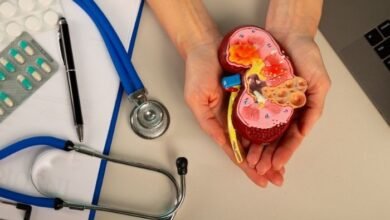10 Safe Sex Practices You Must Know & Follow

Sexual health is an integral part of overall well-being, and practicing safe sex ensures not only physical health but also emotional stability. Whether you’re in a committed relationship or exploring new connections, understanding and implementing safe sex practices is essential. In this article, we’ll explore ten safe sex practices that everyone should know and follow.
Why Is Safe Sex Important?
Practicing safe sex protects you and your partner from:
- Sexually Transmitted Diseases (STDs): Such as HIV, gonorrhea, chlamydia, and syphilis.
- Unplanned Pregnancies: Providing control over reproductive choices.
- Emotional Peace of Mind: Knowing you’ve taken steps to protect your health and well-being.
Now, let’s dive into the top ten safe sex practices.
1. Use Condoms Consistently
Condoms are one of the most reliable barriers against STDs and unplanned pregnancies. They are available in various materials, such as latex and non-latex (for those with allergies).
- Best Practice: Use a new condom for every sexual act and follow the instructions on the package for proper use.
2. Get Regular Health Check-Ups
Regular screenings for STDs are crucial, especially if you have multiple partners. Early detection ensures prompt treatment and reduces the risk of spreading infections.
- Best Practice: Schedule STD tests every 3-6 months if sexually active with different partners.
3. Have Open Communication with Your Partner
Discussing sexual health, past experiences, and preferences with your partner is vital. Transparency builds trust and ensures you’re on the same page regarding protection.
- Best Practice: Talk about STDs, contraception, and boundaries before becoming sexually active.
4. Avoid High-Risk Behaviors
Unprotected sex, sharing needles, or having multiple partners without precaution increases the risk of infections.
- Best Practice: Limit risky behaviors and take preventive measures when engaging in new relationships.
5. Use Dental Dams for Oral Sex
Dental dams are thin sheets of latex that act as a barrier during oral sex, protecting against STDs.
- Best Practice: Use a dental dam every time during oral sex, especially with new or multiple partners.
6. Stay Vaccinated
Vaccines like those for HPV and hepatitis B can significantly reduce the risk of certain STDs.
- Best Practice: Ensure you’re up to date on your vaccinations, especially if you’re sexually active.
7. Avoid Alcohol and Drugs Before Sex
Substances can impair judgment, leading to unprotected sex or risky behaviors.
- Best Practice: Make clear-headed decisions by avoiding alcohol and drugs before engaging in sexual activity.
8. Understand and Use Birth Control
While birth control methods like pills, IUDs, and implants don’t protect against STDs, they are effective in preventing unplanned pregnancies.
- Best Practice: Combine condoms with another form of birth control for dual protection.
9. Know the Signs of STDs
Being aware of symptoms like unusual discharge, itching, pain, or sores can help in early detection and treatment.
- Best Practice: If you notice any unusual symptoms, refrain from sexual activity and see a doctor immediately.
10. Respect Consent and Boundaries
Consent is the foundation of a healthy sexual relationship. Both partners must willingly agree to engage in any sexual activity.
- Best Practice: Communicate openly and ensure mutual consent before and during sexual activities.
How to Discuss Safe Sex with Your Partner?
Talking about safe sex may feel awkward but is necessary. Follow these steps:
- Choose a comfortable setting.
- Start with “I care about our health and want to discuss how we can stay safe.”
- Bring up protection methods like condoms or testing.
- Be open to your partner’s questions and concerns.
FAQs on Safe Sex Practices
1. What is the most effective way to prevent STDs?
Using condoms correctly during every sexual encounter is the most effective way to reduce the risk of STDs.
2. Can I get an STD even if I use protection?
While condoms significantly reduce the risk, they aren’t 100% effective against all STDs, especially those spread through skin contact like herpes or HPV.
3. Is oral sex completely safe?
No, oral sex can still transmit STDs like gonorrhea, herpes, and HPV. Using dental dams or condoms can reduce the risk.
4. How often should I get tested for STDs?
If you’re sexually active, especially with multiple partners, get tested every 3-6 months or before starting a new relationship.
5. Are condoms reusable?
No, condoms are for single use only. Always use a new condom for each sexual act.
Final Thoughts: Prioritize Your Sexual Health
Safe sex is more than just a precaution; it’s a responsibility to yourself and your partner. By following these ten practices, you can enjoy a fulfilling sex life while safeguarding your health. Remember, taking proactive steps today ensures a healthier tomorrow. Stay informed, stay protected, and embrace a lifestyle of safe sexual practices!




